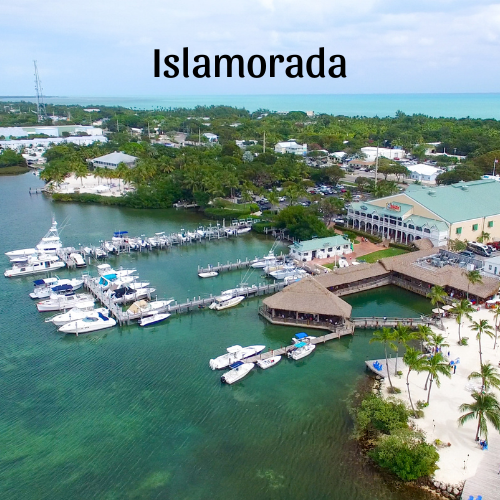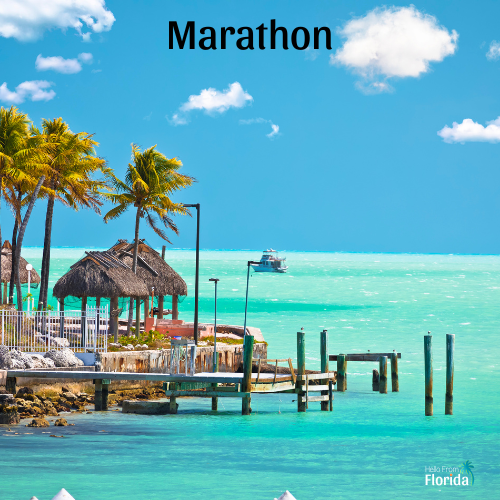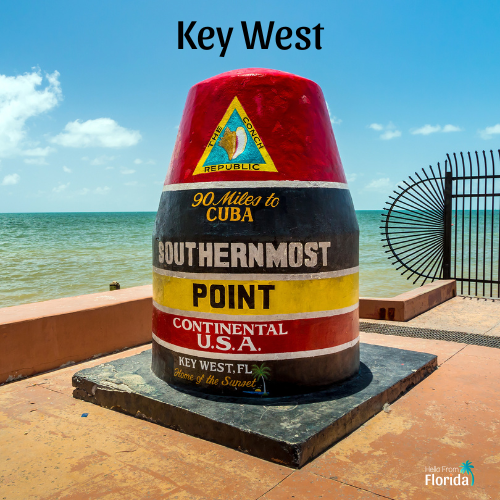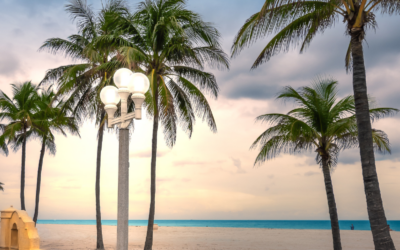Hello From
The Florida Keys!
“Come as you are”
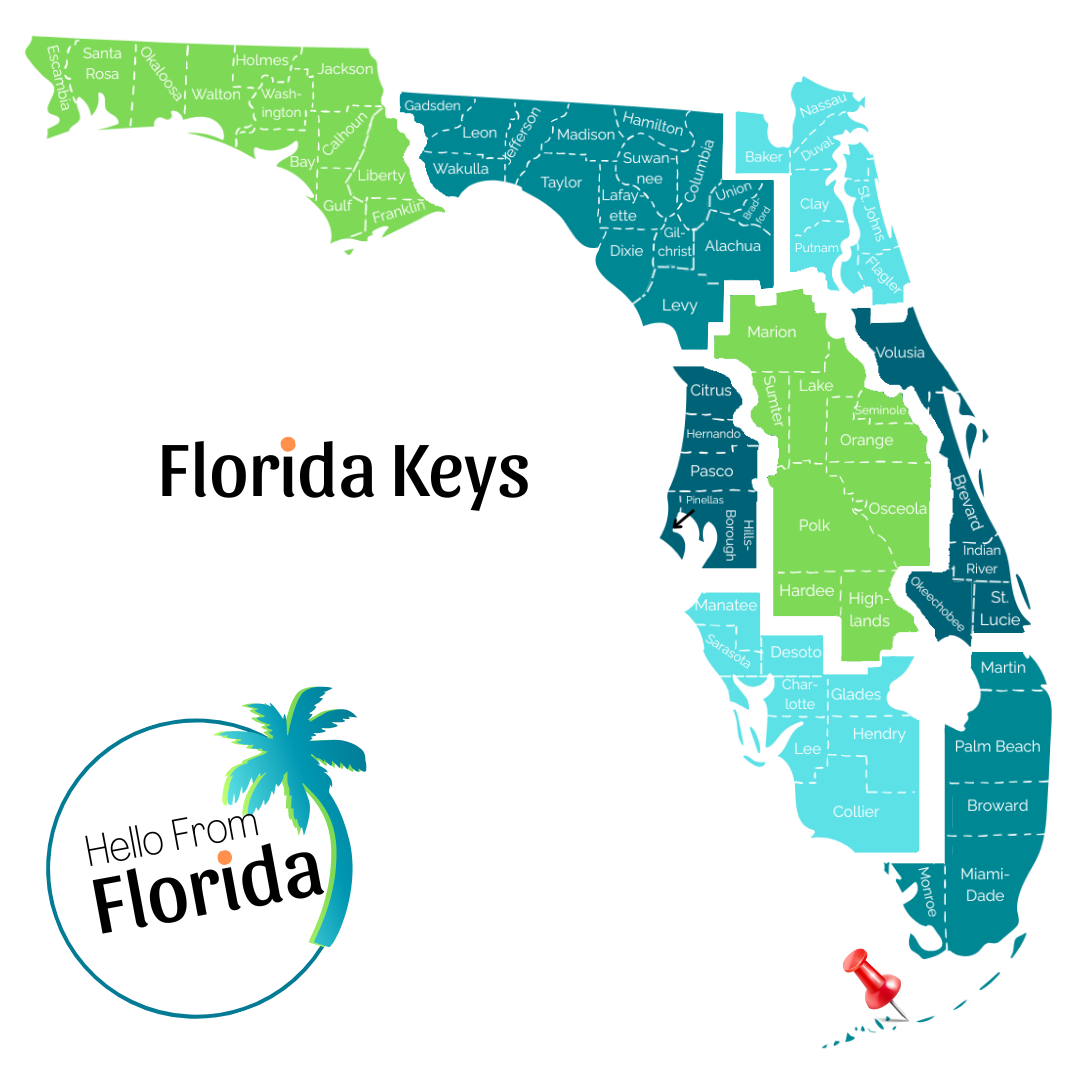
The Florida Keys
A string of Islands in Monroe County, Florida
The Florida Keys are a string of tropical islands stretching about 120 miles off the southern tip of Florida, linked by the scenic Overseas Highway and surrounded by the turquoise waters of the Atlantic Ocean and Gulf of Mexico. Known for their coral reefs, lush mangroves, and laid-back island lifestyle, the Keys are divided into the Upper Keys, Middle Keys, Lower Keys, and Key West. Visitors come for world-class snorkeling, diving, boating, fishing, and sunsets, as well as the rich history and vibrant culture of places like Key West. With a blend of Caribbean charm and American coastal character, the Florida Keys offer a true escape — living up to their official slogan, “Come As You Are.”
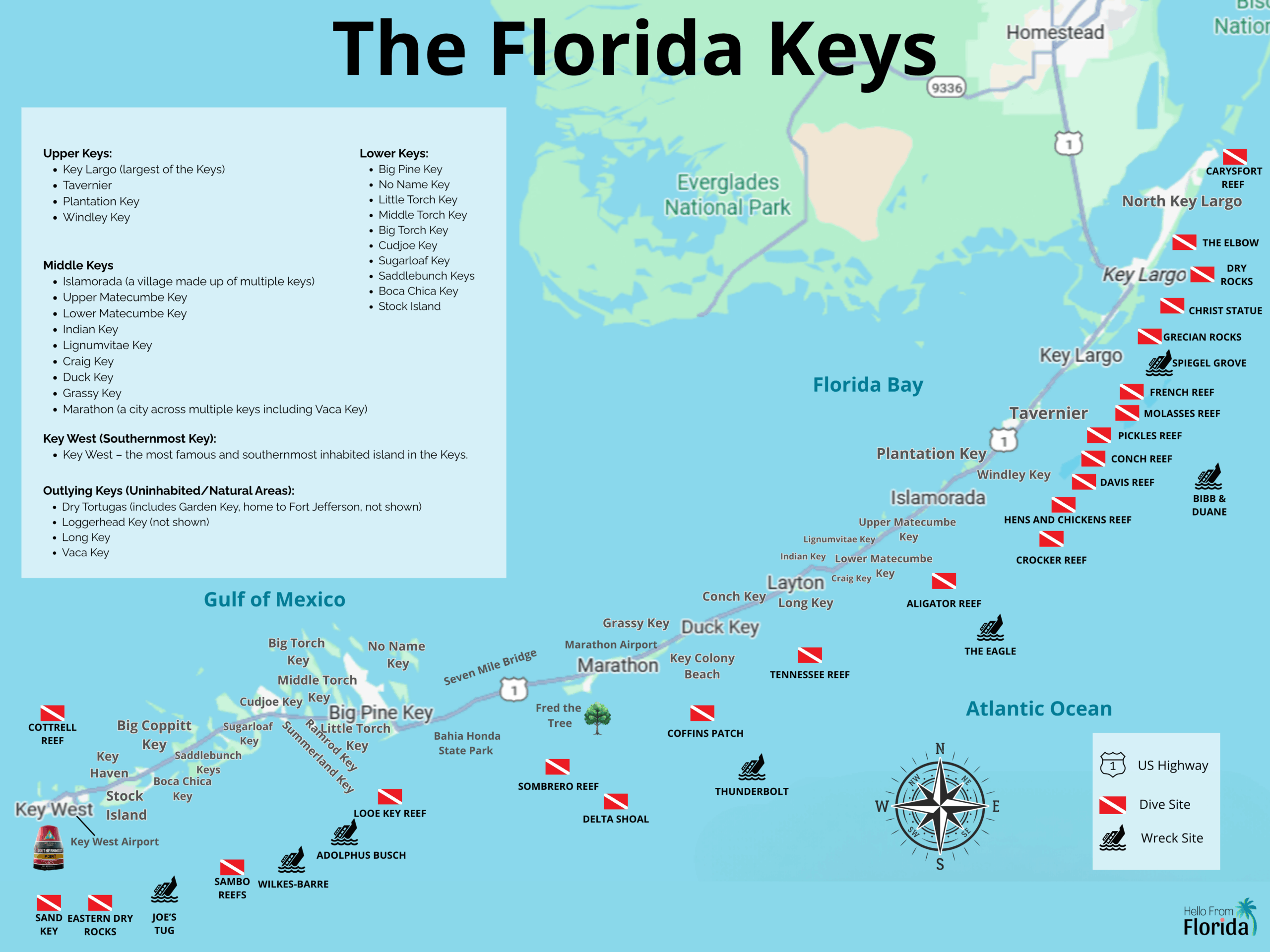
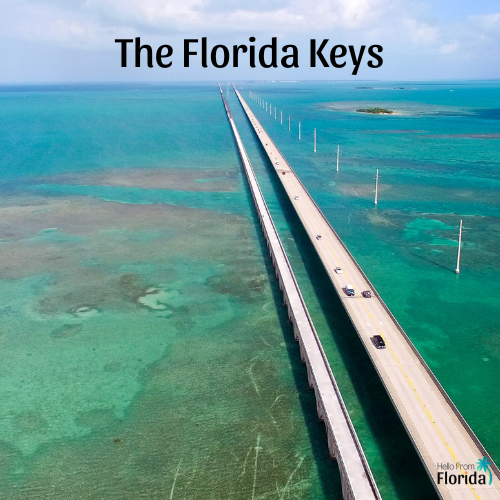
Seven mile bridge in the Florida Keys
Photo by Gagliardi via Canva
Location & Size
The Florida Keys are a coral cay archipelago stretching approximately 120 miles off Florida’s southern coast, starting around 15 miles south of Miami and curving southwest toward Key West and the Dry Tortugas. They lie between about 24.3° and 25.5° N latitude.
The islands lie along the Florida Straits, dividing the Atlantic Ocean to the east from the Gulf of Mexico to the northwest, and defining one edge of Florida Bay.
95% of the Florida Keys are located in Monroe county with a very small portion in Miami-Dade.
The total land area covers roughly 137.3 square miles
There are over 1,700 individual islands in the Florida keys, with some sugesting that there could be closer to 2,000 or more unnamed ones.
All keys are islands, but not all islands in the Florida Keys are keys. The term “key” in the Florida Keys context carries a specific connotation related to its formation and geological characteristics. The islands all vary in size, from sandbars to to much larger land masses with the largest being Key Largo, at 30 miles long.
The most notable, and inhabited ones are listed below, organized by region.
Upper Keys:
-
Key Largo (largest of the Keys)
-
Tavernier
-
Plantation Key
-
Windley Key
Middle Keys:
-
Islamorada (a village made up of multiple keys)
-
Upper Matecumbe Key
-
Lower Matecumbe Key
-
Indian Key
-
Lignumvitae Key
-
-
Craig Key
-
Duck Key
-
Grassy Key
-
Marathon (a city across multiple keys including Vaca Key)
Lower Keys:
-
Big Pine Key
-
No Name Key
-
Little Torch Key
-
Middle Torch Key
-
Big Torch Key
-
Cudjoe Key
-
Sugarloaf Key
-
Saddlebunch Keys
-
Boca Chica Key
-
Stock Island
Key West (Southernmost Key):
-
Key West – the most famous and southernmost inhabited island in the Keys.
Outlying Keys (Uninhabited/Natural Areas):
-
Dry Tortugas (includes Garden Key, home to Fort Jefferson)
-
Loggerhead Key
-
Long Key
-
Key Vaca
History & Founded
-
The region officially gained structure as Monroe County on July 3, 1823, encompassing both the Keys and parts of the Everglades.
-
The U.S. Navy established a naval depot in Key West in 1823, ushering in increased security and settling influence.
-
The Overseas Railroad, completed by Henry Flagler in 1905 (later replaced by today’s Overseas Highway), dramatically enhanced connectivity and development
- The 23 year run of the Overseas Railway came to end after the Labor Day Hurricane of 1935 made landfall as a category 5 storm, only one of four to ever hit the US at that strength. With a storm surge of 17.5 feet above sea level, damages to the railway were never repaired. 400 people lost their lives that day, with some reporting deaths closer 600.
Population
According to the 2020 U.S. Census, the Florida Keys (primarily in Monroe County) had a population of 82,874
Things to do
- Visit Fred the Tree. If your are traveling over the Seven mile bridge, be sure to look for and give a waive to Fred. Fred the Tree is located on the old Seven mile bridge. Specifically, he sits between Mile Marker 41 and 42.
-
Water adventures: snorkeling, diving, fishing, boating, and eco-tours.
-
Astronomy & dark skies: Great for stargazing, especially during the Winter Star Party.
-
Cultural experiences: Museums, arts programs, literary festivals, and tropical Caribbean-influenced culture
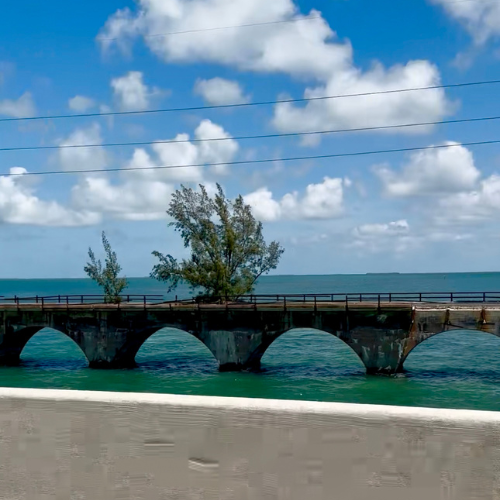
Fred the Tree on the Seven Mile Bridge in the Florida Keys
Fun Facts
-
The archipelago forms the southernmost part of the continental U.S., with Key West just 93 miles from Cu
-
Spanish sailors used Key West’s harbor as a safe port as early as the 1500s.
-
The Overseas Highway has 42 bridges, including the iconic Seven Mile Bridge.
-
The Keys are a top spot for stargazing, with astronomy events like the Winter Star Party.
-
Bahia Honda State Park is considered to have some of the best beaches in the U.S.—despite the Keys not being known for big sandy shorelines.
-
Key West’s Hemingway House is home to dozens of six-toed cats, descendants of the author’s pet.
-
In the 1800s, the Keys produced 90% of the world’s pineapples.
Cost of living
Cost of Living
Median Household Income
-
Average household income: $126,089
-
Median household income: $82,077
Housing Costs
-
Median home value (Monroe County): around $723,800—more than double the U.S. median.
-
Median home values with mortgage in Keys area: about $698,200, very similar to overall Monroe. County figures.
-
Monthly housing cost (likely rent or mortgage): $1,619
Nearby Cities
Hello From Florida Blog
Top 10 Beach Day Essentials
For the perfect day on a Florida beachIf you are...
Hollywood Beach
Clearwater Beach is renowned for its...


